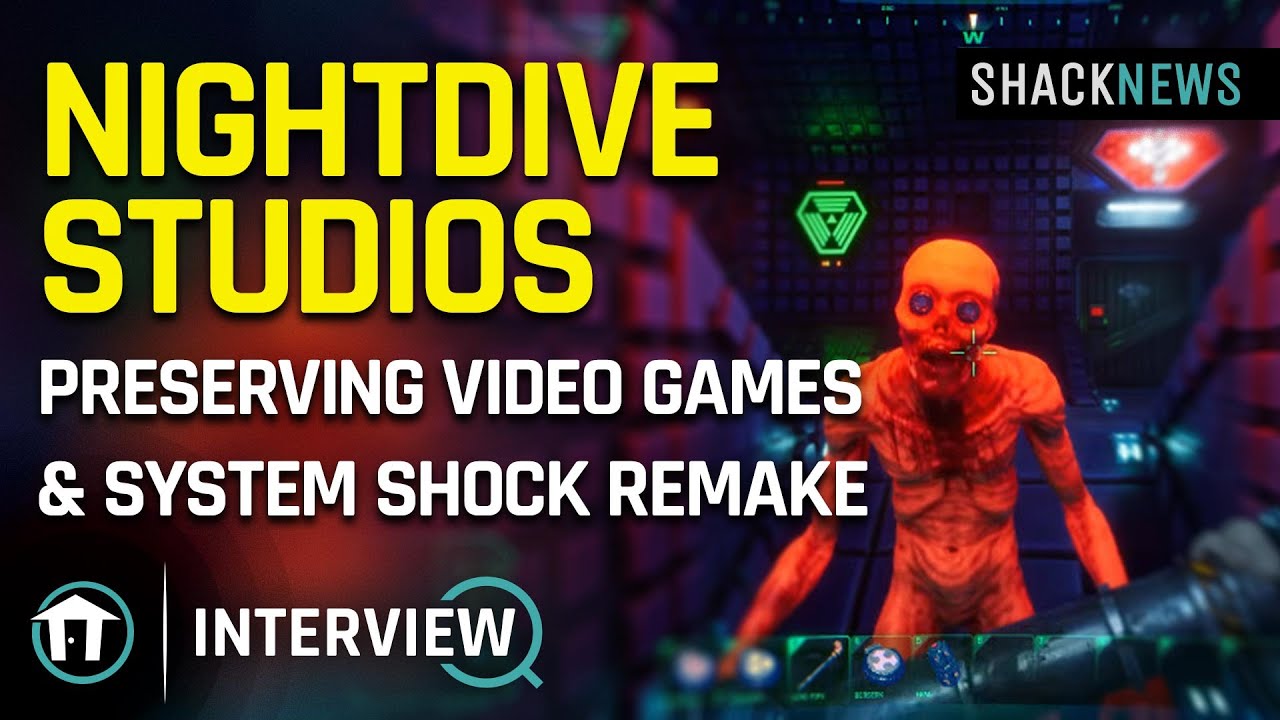In the vast digital catacombs of gaming history, countless titles lie dormant, their once-vibrant worlds fading into the ether of obsolescence. These are the ghosts of gaming past – masterpieces, cult classics, and forgotten gems alike – often too complex, too archaic, or simply too broken to run on modern systems. For decades, the notion of “game preservation” was a noble but often quixotic quest, fraught with technical nightmares, legal quagmires, and the inevitable march of progress rendering old hardware obsolete. But what if there was a dedicated cadre of digital archaeologists, not just unearthing these relics, but breathing new, accessible life into them? Enter Nightdive Studios, the unsung heroes currently revolutionizing how we interact with gaming`s foundational texts.
Nightdive isn`t merely in the business of slapping a fresh coat of paint on old pixelated facades. Their mission extends far beyond superficial graphical enhancements. At its core, Nightdive`s philosophy is about democratizing access to gaming heritage. It`s a commitment to ensuring that anyone, regardless of their hardware, physical abilities, or even their tolerance for late-90s user interfaces, can experience the joy and challenge of these seminal works. This isn`t just about nostalgia; it`s about keeping a vital part of cultural history alive and relevant.
Heretic and Hexen: From Obscurity to Open Arms
Consider the recent revitalization of Heretic (1994) and Hexen: Beyond Heretic (1995), two dark fantasy first-person shooters from the venerable Raven Software. In their original incarnation, these were formidable titles, often overshadowed by their demonic brethren Doom and Quake. Heretic pioneered inventory systems and environmental interaction in the FPS genre, while Hexen introduced a class-based system and an innovative hub-world structure. Yet, their labyrinthine level designs and sometimes unforgiving nature meant they remained niche favorites, teetering on the brink of being lost to time for all but the most dedicated retro enthusiasts.
Until now. Nightdive`s newly released collection doesn`t just polish the visuals; it fundamentally re-engineers the experience for a modern audience. Stephen Kick, CEO of Nightdive, articulated their ethos succinctly:
“Accessibility is a key part of our mission… We’re not just making it look better—we’re making sure it can be played and enjoyed by as many people as possible.”
This isn`t a passive byproduct of remastering; it`s an intentional design principle.

The most celebrated, and arguably necessary, addition to Heretic and Hexen is a sophisticated map and waypoint system. For those who recall the bewildering corridors and often illogical progression of the originals, the inclusion of a pseudo-waypoint system is nothing short of a divine intervention. As Larry Kuperman, Nightdive`s Director of Business Development, pointed out, this was “the feature most requested by fans.” It gently guides players without sacrificing the thrill of exploration, a testament to striking that delicate balance between original intent and contemporary playability. No longer will players find themselves wandering aimlessly through arcane dungeons, asking themselves, “Where, precisely, is that second Serpent Rider?”
Beyond navigation, Nightdive meticulously implements a suite of customizability options: comprehensive controller and keyboard remapping, various visual filters to toggle between classic pixelation and modernized clarity, and anti-aliasing. This level of granular control empowers players to tailor the game to their exact preferences, whether they crave the raw, unadulterated challenge of the originals or a more forgiving, contemporary experience. It`s a pragmatic approach to respecting legacy while embracing evolution. As Kuperman noted, “We see ourselves as helping to fulfill the original vision using today’s tools.” A rather elegant way of saying, “We`re giving Raven Software the ray tracing they really wanted back in `94.”
The Broader Canvas of Accessibility in Gaming
Nightdive`s work extends beyond Heretic and Hexen, encompassing acclaimed remasters like System Shock 2 and Star Wars: Dark Forces, alongside the full-fledged remake of the original System Shock. Each project underscores a deep understanding that true preservation isn`t just about freezing a game in amber; it`s about making it breathable and vibrant for a new generation. The inclusion of difficulty options, combat assists, and even puzzle complexity adjustments in their System Shock titles exemplifies this commitment. What were once intimidating, almost masochistic experiences are now inviting to a broader audience, demonstrating that challenging design doesn`t have to equate to exclusionary design.

While the studio humbly admits there`s always room for improvement—specifically citing colorblind options as a future focus—their trajectory is clear. Nightdive Studios is not just preserving games; they are actively shaping the future of how we interact with gaming`s past. They are transforming the digital graveyard into a living museum, where classic adventures are not merely displayed behind velvet ropes but actively engaged with, appreciated, and understood by a global community. In an industry increasingly plagued by the vanishing acts of digital-only titles and the fragility of intellectual property, Nightdive`s unwavering dedication to preservation and accessibility stands as a powerful testament to the enduring value of every pixelated legacy.

